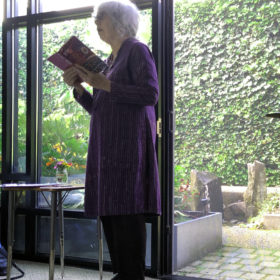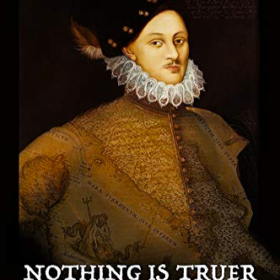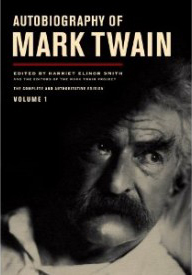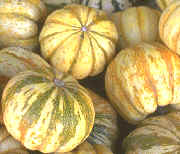-

Adventures in Reading 2022
PART ONE: DISTRACTION AND ENCHANTMENT 2022 was unkind to my habit of reading lots of books. Partly my paid work was to blame: growing pains (which I am too old for) of the professional kind. Then there was the several weeks I wasted on Thomas Mann‘s Doctor Faustus, which I had to abandon. What drudgery! What a distraction! I’d read and admired a number of Mann’s short stories, but Doctor Faustus struck me as all posturing, a ponderous performance with no point in sight, almost every moment of it arriving via second- or third-hand reports about Mann’s fictional, Schoenbergian composer, Adrian Leverkühn.Read More
-

Adventures in Reading 2019
2019 was a challenging year—deaths, health scares, creative dysfunction—but as ever, reading sustained me. I finally read Juan Rulfo‘s classic Pedro Páramo—one of those books that makes me wonder why I waited so long. It’s a visceral, phantasmagorical novel with all the psychic force of Greek tragedy. I knew that it is widely considered the first fully-realized instance of magical realism, and I can see how unlikely it would be for us to have One Hundred Years of Solitude without Rulfo’s influence.Read More
-

Nothing Is Truer than Truth
More than fifteen years ago I became convinced that the man named William Shakspere, resident of Stratford-upon-Avon and identified since the mid-18th century as the author William Shakespeare, was not, in fact, the author of the plays and poems. (See a select bibliography at the end of this post.) Then, about a decade ago, I discovered that a movie about the real author—Edward de Vere, 17th Earl of Oxford—was in the works.Read More
-

Hypocralert
On the subject of hypocrisy (ongoing, yet continually surprising), this from the November issue of Harper’s Magazine—its “Harper’s Index”: July 13, 2011: Republican (Ill.) Joe Walsh said Washington can’t put “one more dollar of debt upon the backs of my kids.” Date the Issue of Harper’s Went to Press: Walsh owed $98,422 in back child support.Read More
-

Ghettoized…
From Gary Shteyngart‘s conversation with Alex Shephard at Full Stop: It used to be that novelists wanted to entertain. Huckleberry Finn: helluva read. Portnoy’s Complaint, a big monologue aimed at an unsuspecting audience: hilarious. If it wasn’t funny, who gave a shit? Some dude has problems with his mom? Whatever. So that’s always at the basis of what I’m trying to do. I don’t want literature – literary fiction – to be ghettoized, to be this tiny little thing that’s only read by the people who write it.Read More
-

What Cannot Be Written
This from the Autobiography of Mark Twain, describing what he calls “the final (and right) plan” for his effort: What a wee little part of a person’s life are his acts and his words! His real life is led in his head, and is known to none but himself. All day long, and every day, the mill of his brain is grinding, and his thoughts, (which are but the mute articulation of his feelings,) not those other things, are his history.Read More
-

Odi et Amo
I’ve been reading with great delight the just-published first volume of Mark Twain’s Autobiography. About a hundred pages in, there is this wonderful description of the man who suckered Twain out of many thousands of dollars over a decade and a half by getting him to invest in a never-to-be-functional typesetting machine. I will remark, here, that James W.Read More
-

“Simblins” Update (**Updated!**)
Thanks to William Michaelian’s recent blog post, I did some follow-up Googling for “simblins” information in the hope of fleshing out the Mark Twain quote I posted earlier. Here some tidbits I found. An entry in his journal by Private Joseph Whitehouse, a member of the Lewis and Clark expedition, on his travels through the Rickoree nation. The entry is dated Saturday, September 29, 1804: Saturday 29th Sept. 1804. we Set off eairly. proceeded on passed bluffs on S. S.Read More
-

Hello, Summer
Three of my favorite Twain sentences, summing up one of the joys of artfulness in summer—a prose poem, really: I know how a prize watermelon looks when it is sunning its fat rotundity among pumpkin vines and “simblins”; I know how to tell when it is ripe without “plugging” it; I know how inviting it looks when it is cooling itself in a tub of water under the bed, waiting; I know how it looks when it lies on the table in the sheltered great floor space between house and kitchen, and the children gathered for the sacrifice and their…Read More

 Joseph Hutchison, Colorado Poet Laureate 2014-2019, has published 20 collections of poems and edited or co-edited three poetry anthologies. He currently directs two master’s-level programs for University College at the University of Denver: Professional Creative Writing and Arts & Culture Management. Joe lives with his wife, Melody Madonna, in the mountains southwest of Denver, Colorado, the city where he was born.
Joseph Hutchison, Colorado Poet Laureate 2014-2019, has published 20 collections of poems and edited or co-edited three poetry anthologies. He currently directs two master’s-level programs for University College at the University of Denver: Professional Creative Writing and Arts & Culture Management. Joe lives with his wife, Melody Madonna, in the mountains southwest of Denver, Colorado, the city where he was born. 









